Introduction
This article discusses the importance and ways of practicing openness for professional growth and success.
Companies want people with traits of openness, though they may not always spell it outright in job descriptions.
Openness is one of our core values at Axelerant.
And we can't emphasize its importance enough, being a fully remote organization with distributed teams scattered worldwide.
Irrespective of where you work or what you do, how open you are at work can be the difference between a successful and an unsuccessful career.
What’s Openness At Work?
Openness at work generally comes from the top.
The leaders of an organization that practices openness actively work towards creating a safe and open environment.
People feel free to communicate ideas, feedback, and concerns without fear of judgment or payback.
There’s total—or near total—transparency in all matters and information about the goings on in the company.
And that, in turn, boosts trust and mutual respect among colleagues, regardless of hierarchy or status.
In the book Radical Candor, author Kim Scott states that consciously practicing traits of openness in an organization can help teams become:
- Productive
- Efficient
- Caring
- Empathetic
How Can Practicing Openness Ensure Professional Success?
According to a study published by the University of Applied Sciences and Arts Northwestern Switzerland, there’s a strong correlation between academic achievement and openness traits of a person.
That advantage applies at work, too.
Openness is one of the fundamental traits of entrepreneurial success.
Here's how your chances of success at work increase by practicing openness.
Better Exposure
Everyone has a lot going on, and people rarely have time to see what others are doing.
Until they hear about it. And they can mostly hear about it—from you.
When people are open, they allow others to see their work and its impact.
Your colleagues will know about your efforts, ideas, and talents, increasing your visibility and recognition within the organization.

Insulation From Communication Gaps
Most communication gaps at work happen because people gravitate towards private, one-to-one conversations when they should've been done in open channels.
Misalignment and confusion set in. And accountability goes for a toss.
Honest, open communication helps uncover and address issues and gaps early on—preventing potential conflicts.
It also makes it more challenging for deceptive or dishonest behavior to thrive, increasing accountability for everybody.
More Opportunities
Logically speaking, who will get more opportunities?
The person coming up with and sharing new ideas and working with everyone to implement them openly, or one who doesn't contribute (though they may have good ideas off their sleeves)?
By choosing to be open, you can contribute meaningfully to projects, initiatives, and decision-making processes.
It lets your supervisors know you have what it takes to lead and solve problems for the team.
And that's a good sign for you and your career growth.

Better Growth
A significant part of practicing openness is being receptive to constructive feedback.
It shows your colleagues and supervisors that you want to grow and welcome guidance when needed.
You can proactively develop your skills and advance within the organization by freely discussing areas for improvement and career aspirations.
How Can You Practice Openness At Work?
Fair warning: people who like to go back on their words, blame others for their shortcomings, and lack integrity might find you detestable.
But then, these practices will also insulate you from them.
Following these also ensures that your efforts get noticed by the right people at work.
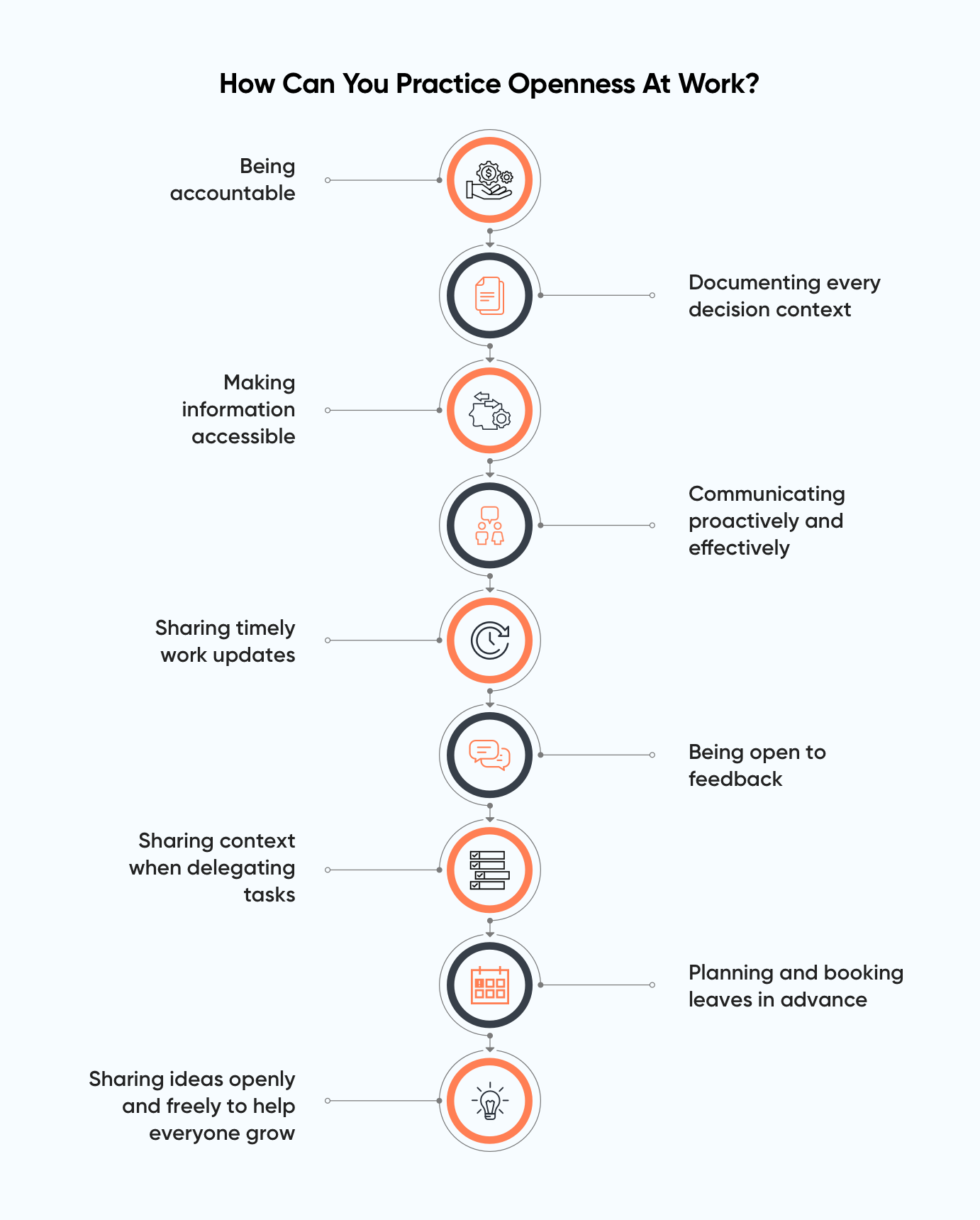
Being Accountable
Accountability and ownership go hand-in-hand.
And owning your work lets you reap the benefits of your work’s results.
Even when those results are not as expected, you can take responsibility for your actions, decisions, and commitments.
Admit mistakes openly and work towards resolving them with your team.
For instance, when encountering issues with code or project deliverables, you can demonstrate accountability by openly acknowledging the challenges, seeking help from your team, and collaborating to find solutions.
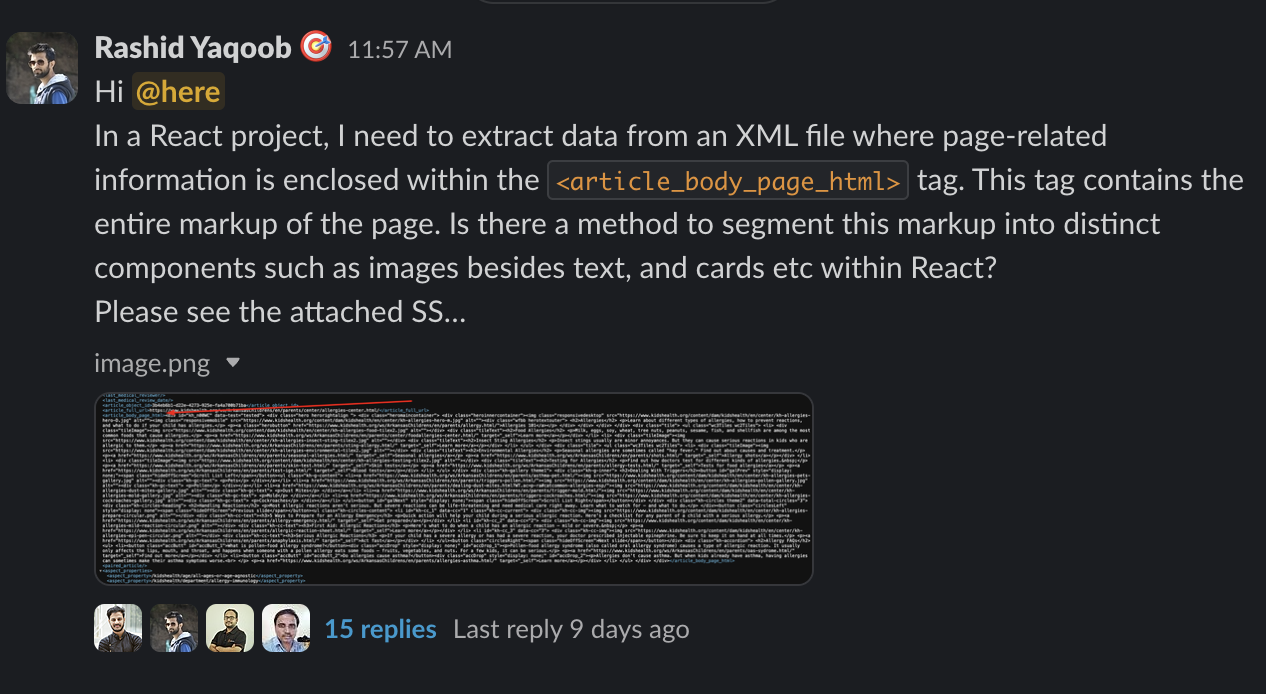
Documenting Every Decision Context
The pace of work increases every day. People often have to make split-second decisions.
Keeping records of every small decision may not be possible, but you should try to document anything that affects your team's projects and work experience.
Note down decisions and their rationale in open, accessible channels.
Documenting context promotes transparency and helps others understand your reasoning behind actions.
For example, when selecting a specific technology stack for a project, documenting the decision context may involve outlining the performance requirements, budget constraints, and scalability needs that influenced the decision.
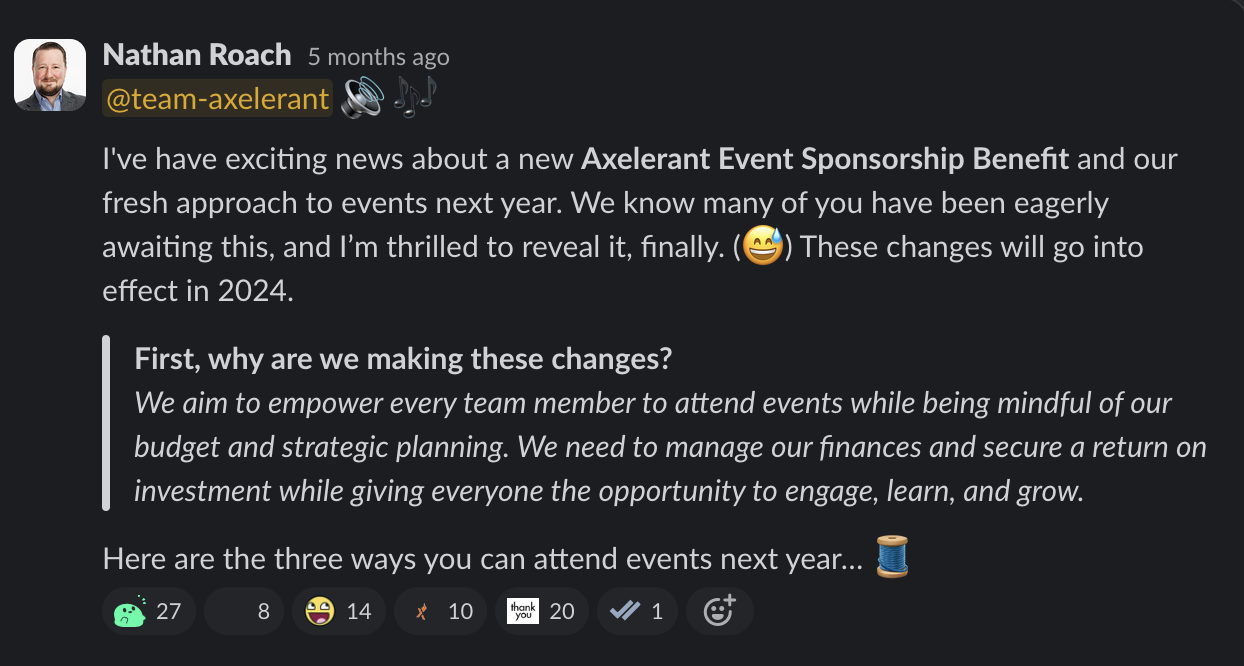
Making Information Accessible
Ensure that relevant information, documents, and resources are easily accessible to all team members.
This makes you and your work more transparent within the organization, and transparency builds trust.
It also ensures better collaboration by reducing dependency on your presence.
You can use centralized project management tools like Jira or Trello to store project documentation and updates.
And maintain an organized and up-to-date shared drive (like Google Drive, OneDrive, or Dropbox) for storing project files and resources.
Communicating Proactively And Effectively
Constant, honest communication is the key to practicing openness.
Make it a habit of proactively communicating with your team members and stakeholders.
Share updates, discuss challenges, and raise blockers in open channels regularly to ensure alignment.
You might struggle with negative emotions when doing these—because people aren't accustomed to openly discussing their challenges.
The fear of being ridiculed, thought less of, or cross-questioned makes it hard to communicate openly.
Here are some pointers that come in handy.
- Schedule regular updates: Set aside dedicated time for team meetings or status updates to keep everyone on the same page
- Use clear and concise language: Avoid jargon and technical terms that may be unfamiliar to team members, and always try to be as precise and clear in your written and verbal communication as possible. Preparing your message beforehand helps
- Actively listen: Practice active listening by attentively considering others' perspectives and providing constructive feedback when required. Don't listen to prove you're paying attention; genuinely engage in the conversation
- Utilize collaboration tools: Communication platforms like Slack or Microsoft Teams are ideal for real-time communication and streamlining information sharing; create dedicated project-related channels, tag people, and get the ball rolling
Being Open To Feedback
Contrary to what most workplaces believe and practice, feedback is an act of kindness.
And it's as necessary as recognizing team members for their everyday wins.
Welcome feedback from peers, supervisors, and stakeholders with an open mind. See it for what it is—an opportunity for growth and improvement.
You can and should actively seek feedback to gain insights into your performance and identify areas for improvement.
A good way to incorporate this practice is by creating a feedback form template and sharing it with people you've recently worked with on a project.
Sharing Context When Delegating Tasks
When one doesn't share enough context for tasks, they set their team members up for possible failures and friction.
People can make independent decisions and fully own tasks only when they have the bigger picture.
When delegating any task, ensure that you mention the following details:
- Context and purpose
- Expectations in terms of quality and timelines
- Desired outcomes
You can also clearly outline who's responsible for what part of a project when delegating to multiple team members.
Planning And Booking Leaves In Advance
Abruptly taking leave can cause project disruptions.
I'm not talking about a day or two of sick leave—which is entirely unforeseen and out of one's control.
An unplanned week of your absence can leave your team members running helter-skelter, trying to meet deadlines without you.
So, always share your leave plans in advance.
It will allow your team sufficient time for workload adjustments and resource allocation.
Following this practice will prove your commitment to being open and show that you respect your team members' time and commitment.
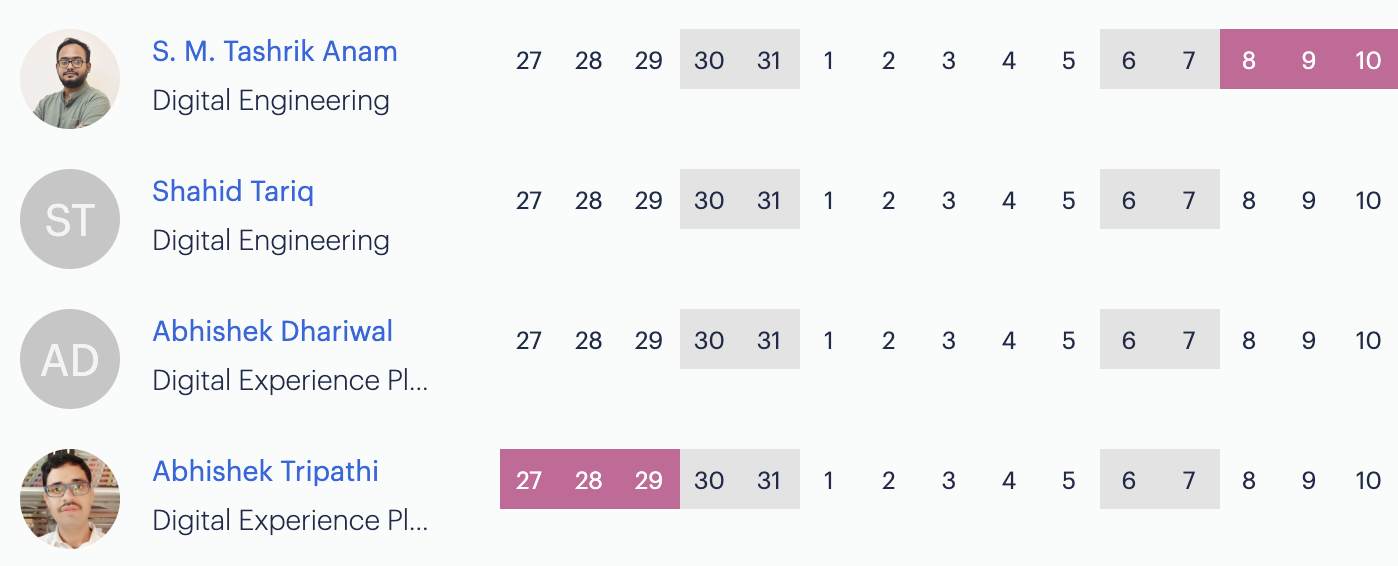
Sharing Ideas Openly And Freely To Help Everyone Grow
Research shows that hiding knowledge and clamming up at work stops your chances of growth and can even backfire.
It's in your and the company's best interest that you share your ideas openly and freely. That's what drives change, innovation, and creativity in a workplace.
Your supervisors will take notice, sooner or later, whether you share ideas or don't.
And your professional trajectory with the company might be influenced by what they notice.
So, share your ideas, insights, and perspectives. Participate in brainstorming sessions, team meetings, and knowledge-sharing activities.
Propose new solutions, suggest process improvements, or share industry trends and best practices with your people.
Start your openness journey today. You work and your career deserve it.
And if your workplace doesn't allow you to be open, you can join a workplace which does.


Rohit Ganguly, Content Marketer
Rohit is a content marketer first and a YouTuber second. He loves to interact with animals, feed them, clean his apartment, and spend time with friends and family. Curious by nature, he also enjoys literature, movies, meditation, and calligraphy.
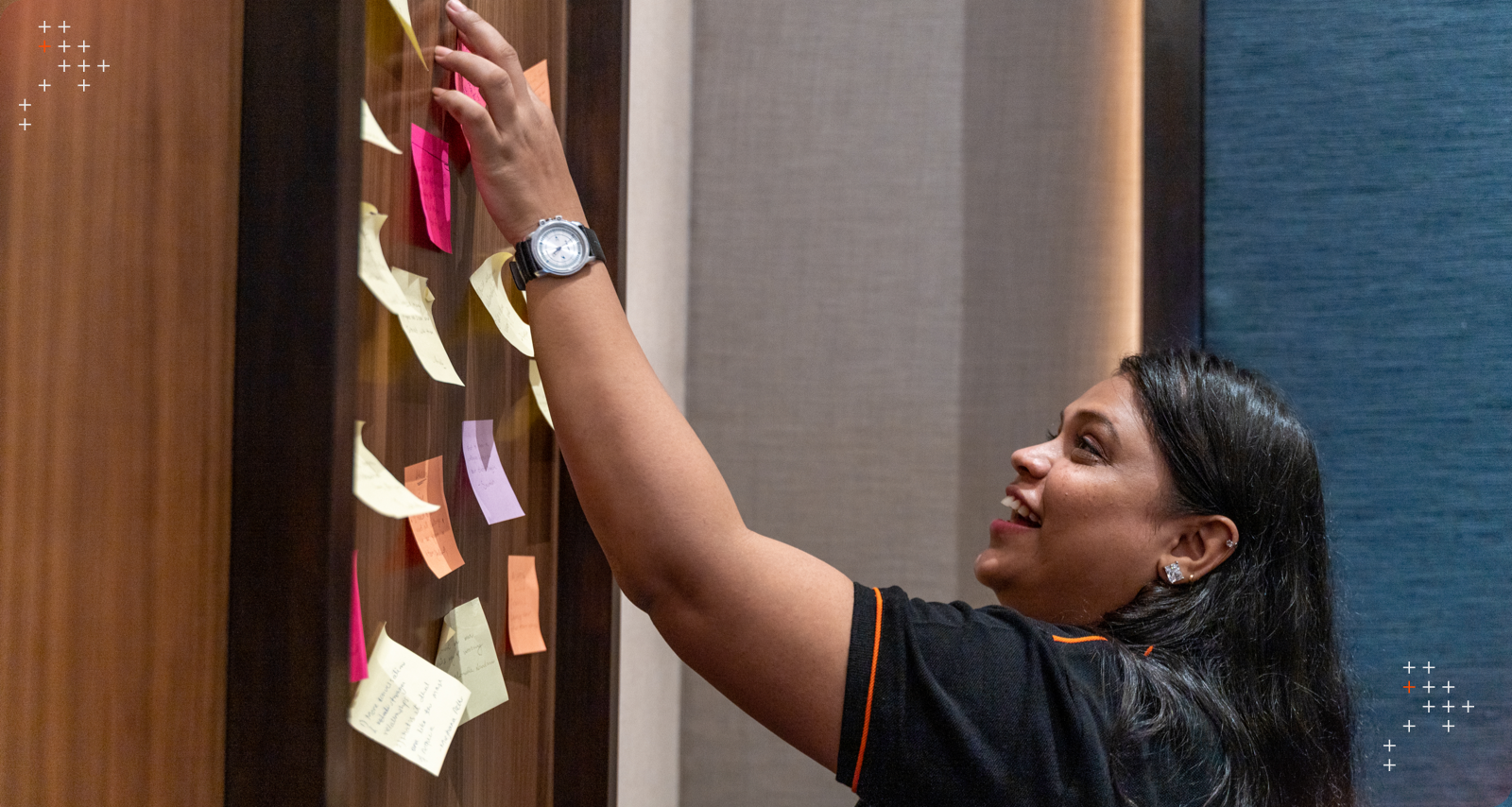
 We respect your privacy. Your information is safe.
We respect your privacy. Your information is safe.



Leave us a comment